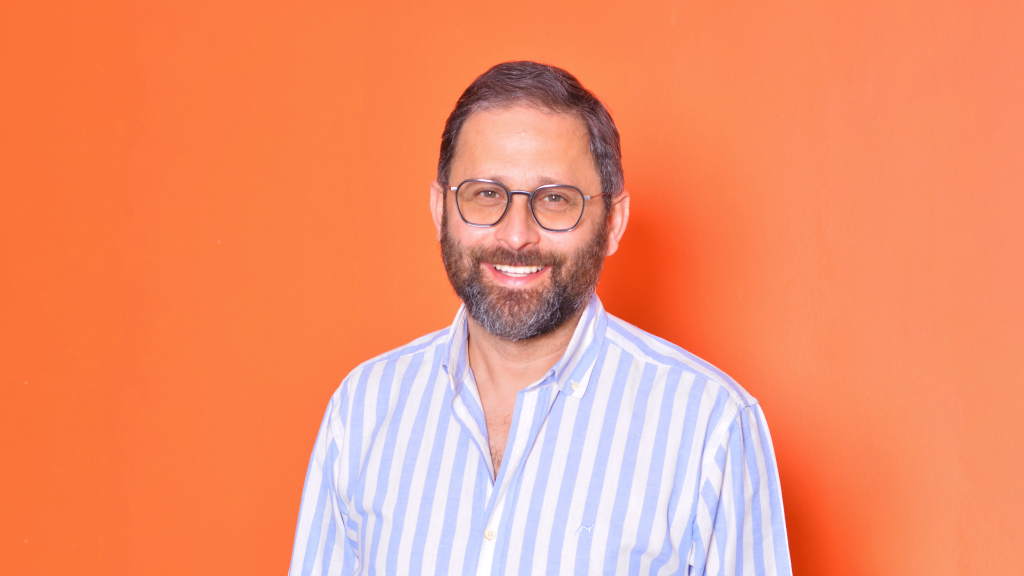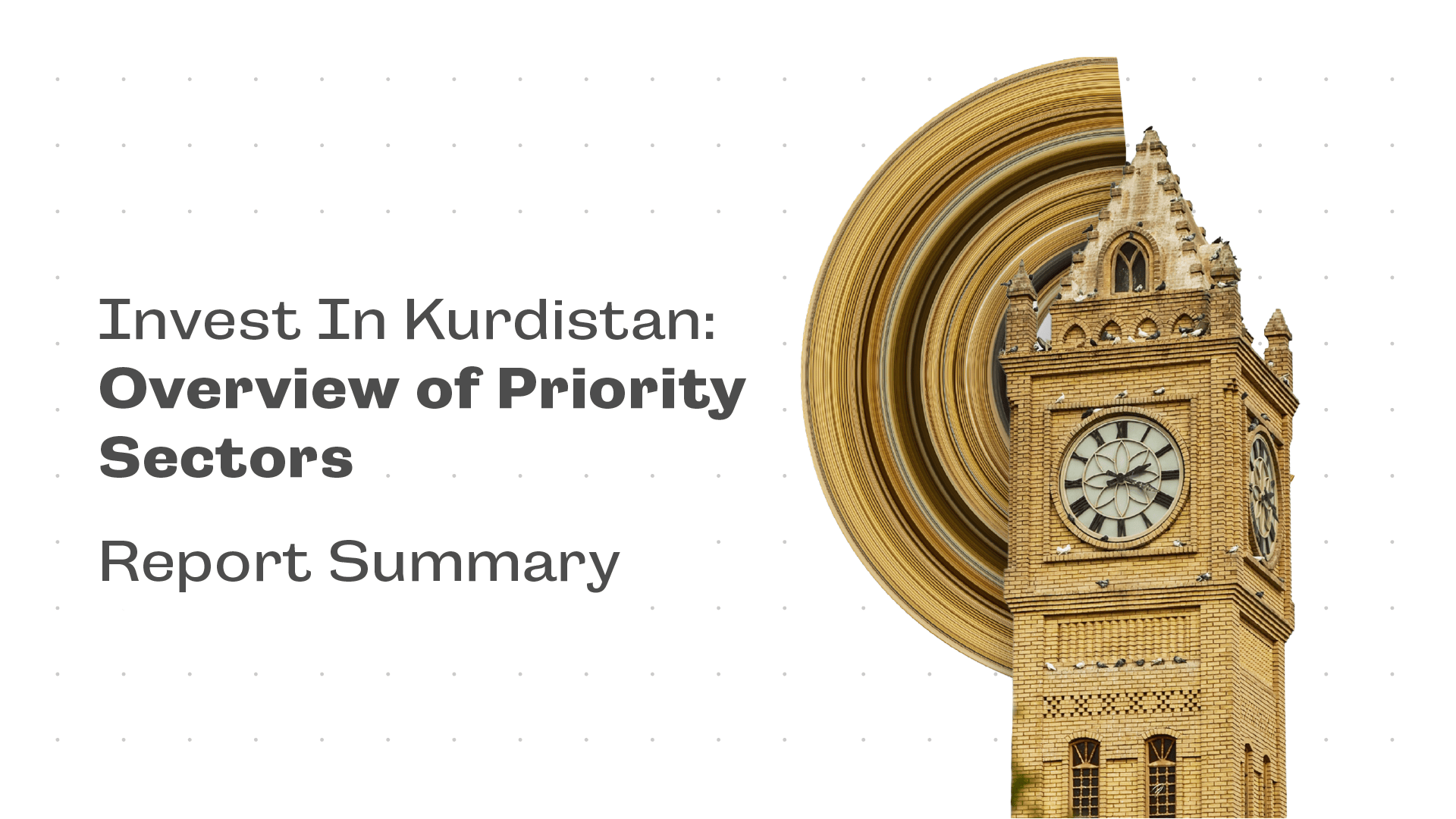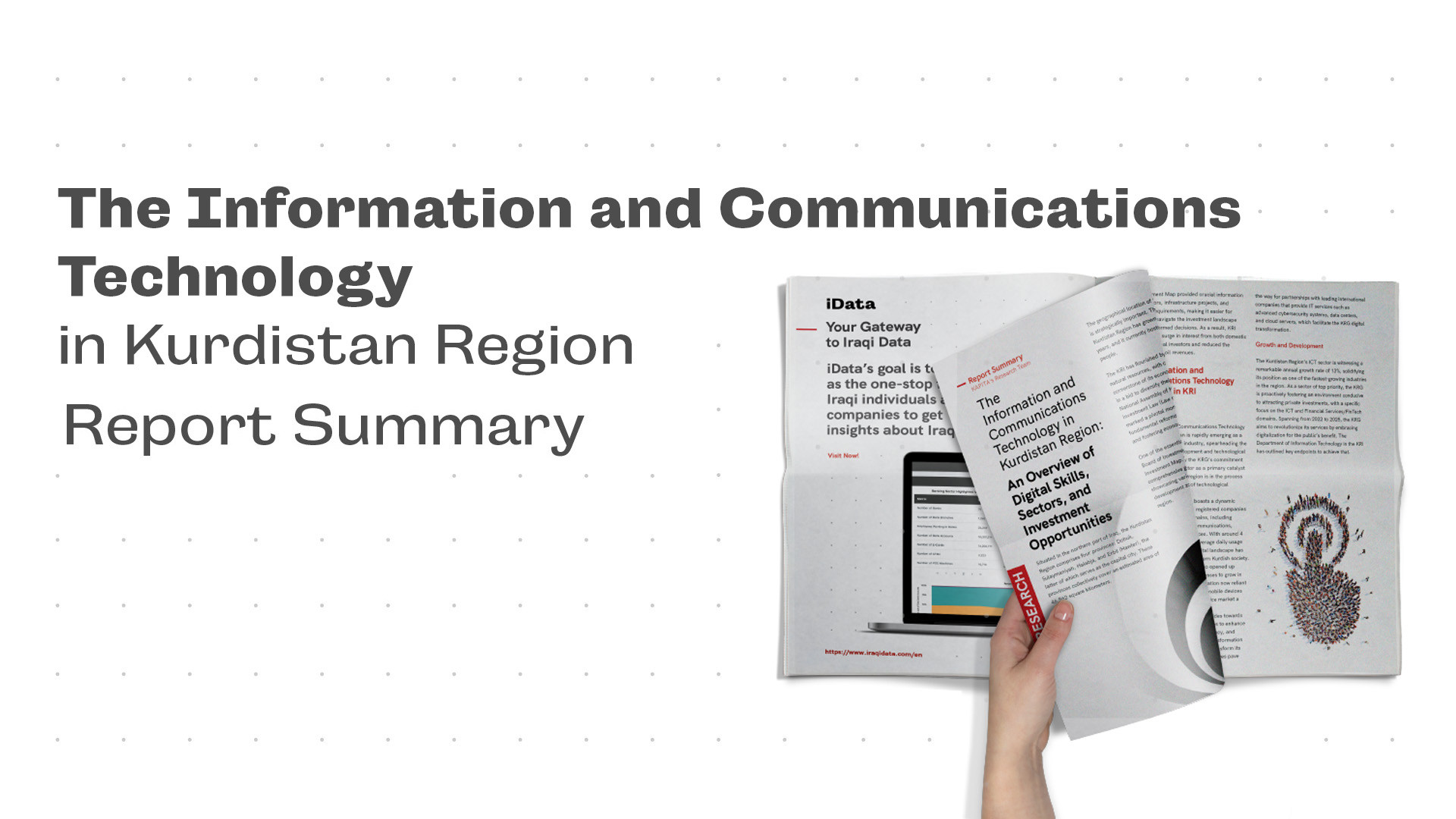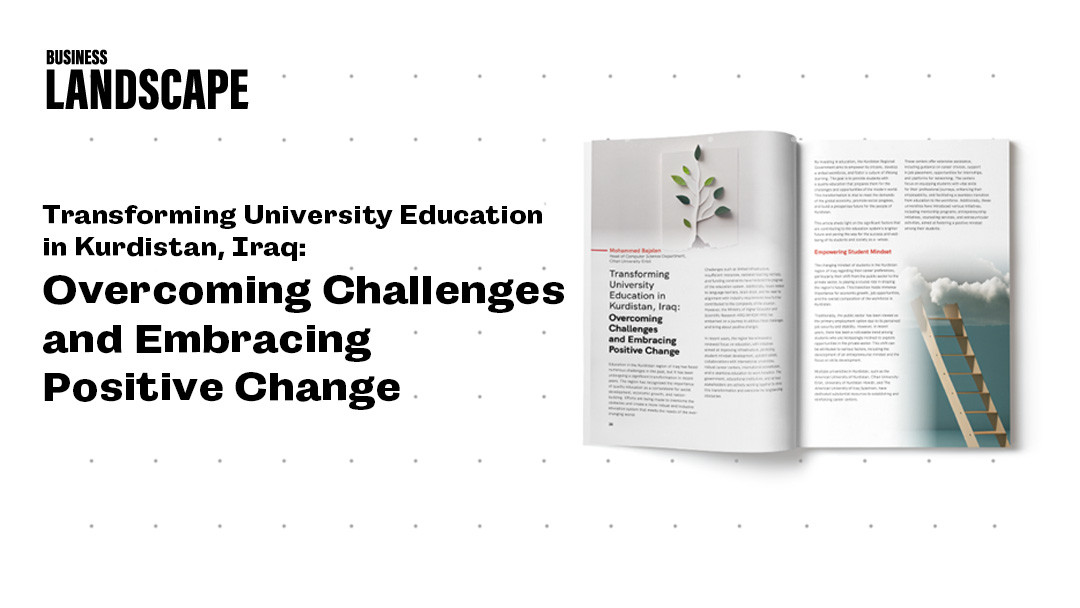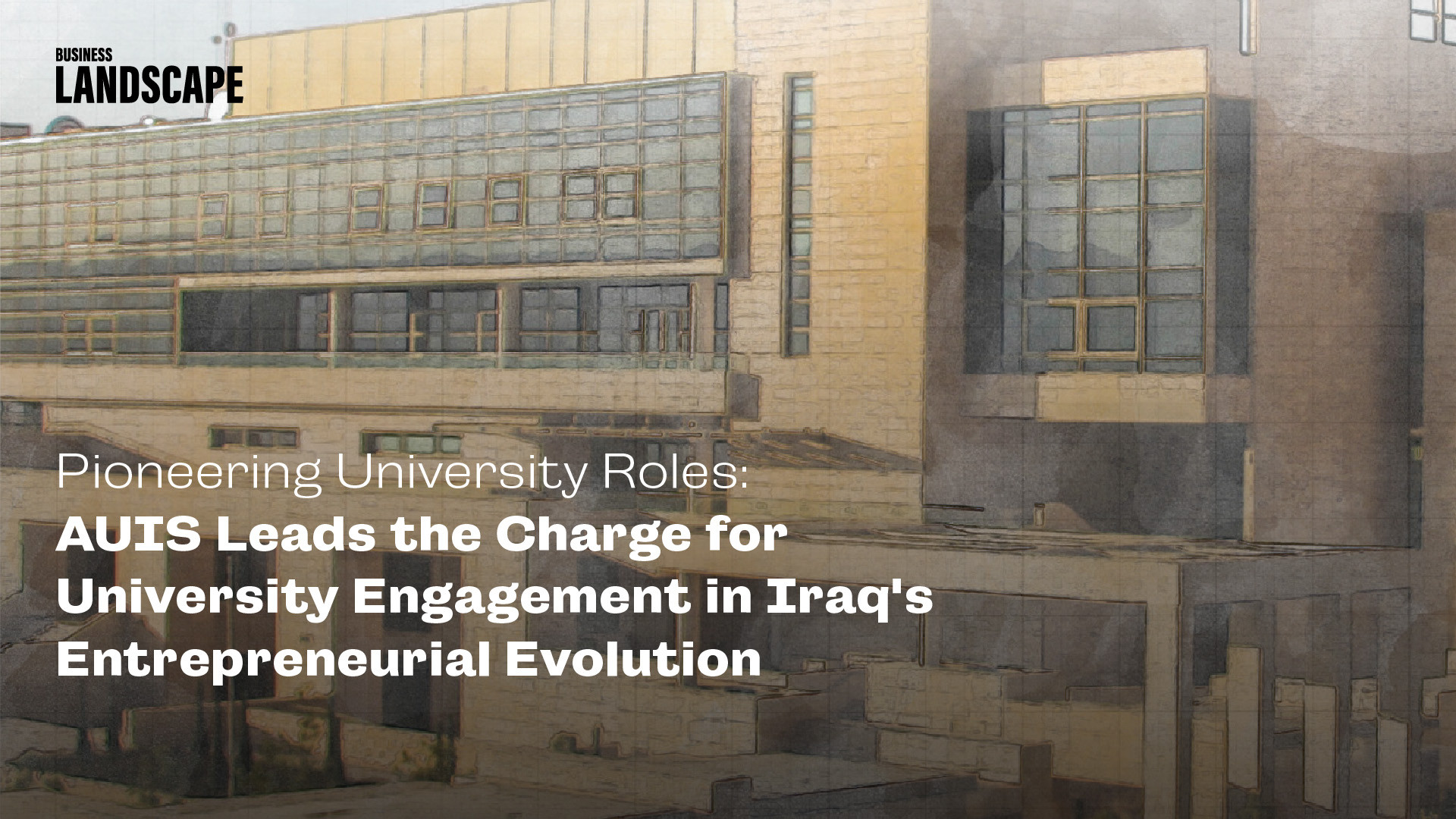Bassam Al-Ateia is the Founder and CEO of Alsaree3 Holding. The Group includes Alsaree3, a food delivery platform, and Al-Zajel, a last-mile delivery service. He is also an experienced businessman and the managing partner of Al-Ateia Group. The Group operates in multiple countries, including Germany, UAE, and Iraq. It involves various companies that offer different services, such as construction, trading, and industrial services.
Mr. Al-Ateia, tells us the story of starting Alsaree3 and discusses the market challenges of this sector, the role of competition in the digital transformation and growth of the market, and the necessity of adequate regulations. He also stresses the responsibility of private sector companies to develop Iraqi human resources and gives us a glimpse into the future plans for Alsaree3.
First, we would love to know more about you.
My name is Bassam Al-Ateia. I am the founder and CEO of Alsaree3 Holding. I come from an engineering background. I did my master's degree in civil engineering and then obtained an MBA from London Business School. Before Alsaree3, I co-founded and co-managed Al-Atiea Group. The Group consists of five companies; a construction service company in Germany, a trading company in the UAE, and three companies in Iraq. One is a large construction company, the other is an oil and gas service company in Basra, and an industrial company producing corrugated pipe. We are the only company in Iraq producing this kind of technology.
How did you make the jump into the entrepreneurship scene?
After finishing my MBA in 2018, I returned to live in Baghdad. At that time, I was struggling to order food. I had to call the restaurant, look for their menu, and provide directions to my place. And the delivery guy had to call several times to be able to reach the correct address.
At that time, there were only two food delivery aggregators in Baghdad, and none of them had their own fleet of drivers, so the restaurants were delivering the food, thus, perpetuating the same problem.
A city like Baghdad needed a better service than that. The market need and my passion for business made me establish Alsaree3. We eventually became Iraq's first food delivery company with its own fleet. We started to develop our technology while considering the Baghdad market, the checkpoints and security, the restaurant types, and customer behavior. Restaurants in Iraq are not like elsewhere, where they are mainly chains, but rather sole establishments, which makes the adaptation process to the system harder. We launched our app in August 2018, and we have been progressing ever since. We were a team of three people sitting in the Baghdad office, and we have grown to have 120 employees and 750 drivers.
How was this process of establishing a dedicated team driving this company's growth?
When we established Alsaree3, we wanted at least 80% of our employees to have the chance to start their careers with us. We were looking for fresh, hard-working, and dedicated talents. We are tremendously proud of creating employment opportunities for the youth segment. In addition, I came from a business background, and I was a civil engineer doing business in construction services and similar fields. When I jumped into the entrepreneurial scene and the last-mile delivery field, I needed to surround myself with the expertise that would lead this company forward. After a long process, I found our Chief Technical Officer (CTO), Riddhi Ojha, in Dubai, who started to develop the app within our requirements. Then I returned to Baghdad and found our Chief Operation Officer (COO), Ahmed Subhi, who has been a big support for us ever since. He had his own small food delivery app in Baghdad, which Alsaree3 eventually acquired to avoid conflict of interest and to be able to have Ahmed and some of his staff join Alsaree3. This gave us leverage to start with several restaurants and have some experience with how the app needs to be developed to serve the Iraqi market.
How was the growth and expansion process for Alsaree3?
The growth process was slower than what I initially expected. We had to move through unusual situations and challenges as we grew. When we started Alsaree3, I was managing several other businesses and could only be part-time CEO. But then some players entered the market backed by many investors and a lot of funding, so we needed to move faster to maintain our market share. Our good operation and direct management were our advantages. So we kept expanding until September 2019, when the protests started, and the internet was cut off. It was difficult for many businesses that rely on the internet connection to function, and unfortunately, we were forced to release some of our drivers. After that period passed, it was not as easy as pushing a button to return to normal. We needed time to recover. Then the COVID-19 pandemic hit in March 2020. Similar businesses elsewhere around the world flourished during the pandemic. However, in Iraq, irrational decisions were made to shut down all the restaurants and impose curfews. Consequently, the food delivery businesses suffered. We recovered since that and have kept growing steadily with good operations and unit economics with a customer-centric approach.
What are the other main obstacles to operating in this sector?
Running a business is a challenge in itself. It is a continuous problem-solving process. However, Iraq is difficult in terms of operations, especially for delivery businesses. For example, more than 2 million motorbikes have entered Iraq since 2018, and now one can see them everywhere. Yet, when we started operating, that was not the case. Finding motorbike drivers who wanted to take customers' orders and deliver them was challenging. Moreover, restaurants were not prepared to use food delivery applications and deal with a third party; they were used to delivering the orders with their own drivers, and it took them a while to adapt.
Another challenge was with the regulations; motorbikes registration in Iraq is complicated and expensive; sometimes, it might cost more than the motorbike itself. In addition, our economy is cash-based, and similar businesses in the region rely on debit/credit card transactions. While we had to develop our operations to be able to deal with and manage cash-based transactions. Besides, the internet coverage in some of the areas is very weak; our drivers sometimes need to have two or three different internet providers to be able to receive an order. Nevertheless, as an Iraqi company, we were able to operate despite all those persistent challenges.
How do the regulations impact the operations and logistics of the business?
Having adequate regulations that match the requirements of modern business models is essential to ensure seamless operations. There is limited coordination between the different authorities and regulating entities which generates unnecessary confusion. We often run into problems with the checkpoints; there are no clear rules about how to operate our motorbikes. This means that if we have an official letter to operate from a specific authority, we still might encounter a checkpoint that belongs to another authority that will reject that letter. The absence of standard rules creates an additional challenge that we need to tackle on daily basis.
In addition, it is healthy for the market to be overseen by a regulator, but the regulator should not be a competitor. I believe that article 25 of the constitution restricts regulators from operating as competitors. Because if that happens, then the regulator, supported by public funding, can easily monopolize the market. The main mission of the state is to support the private sector and help it grow to build a strong economy. Alsaree3, for example, employed around 750 drivers and 120 employees from the initiative of a few people who established the company. Imagine if the government encourages and supports these kinds of companies and allows them to operate in a free market; this would drastically reduce unemployment and foster the growth of our economy.
We witnessed frequent sandstorms this season; how did this impact your business?
During the sandstorms, orders increase as many people do not want to go outside. Our responsibility is to manage our drivers to let them work in shorter shifts as not to compromise their safety. We go into an emergency mode; in our driver management department and operations department, we are constantly communicating with each of our drivers to guarantee their safety. On the other hand, we cannot cease our operations because the demand is high and the customer is counting on us. Weather is a huge factor that affects this sector. Operating in July and August is also very difficult because of the hot weather. Therefore, we need to decrease the working hours for the drivers to protect them. Also, on rainy days, we reduce the driving distance and the perimeter of operations.
Have Alsaree3 and similar companies operating in last-mile delivery and food delivery ever thought to come together and lobby and mitigate the challenges of this market?
It is indeed vital. We have good contact with many of our competitors. We do believe that the market needs an association for these types of businesses so we can lobby to influence regulations. Channeling our efforts would resolve many shared concerns. For example, sometimes, when a driver steals one company's motorbike and moves on to another company, if we had this association, we could block this driver and prevent that from happening. This could also benefit our drivers, in case they have a problem at work or their salaries have not been paid, or they have not been well compensated, they could go to the association to address these issues. The market needs this, and I would like to appeal to all our competitors and stakeholders through Business LANDSCAPE to sit down and discuss how to operate and lobby together on a managerial level.
The Iraqi market was very different when you started in 2018, but now it has developed and started attracting regional and international players. How do you evaluate the state of competition, and what makes you stand out?
Competition is good in general if one is playing fairly. When we started in 2018, there were only two companies in this market, and we acquired one of them. The competition was local and limited, and the market was relatively in its early stages. However, it has exponentially grown, making many big players enter the market. I believe that food delivery is one of, if not the most, competitive market at the moment. We are not afraid of competition. It makes us do better and always aims to develop our operations and services to maintain our customers' satisfaction. Our advantage is that we are an Iraqi company that started early enough to go through the development of the market, with all its highs and lows, and was able to overcome its challenges. This process allowed us to be strong and resilient today to acquire a significant share of the market and adapt to the volatile market changes.
What are the incentives for the drivers to join Alsaree3 instead of other competitors?
In Alsaree3, we have our drivers academy and our employment system that has been developed through the years. Around 40 drivers visit Alsaree3’s headquarters daily; we interview about 20 of them who meet our criteria. Then we train 10 of them, and Alsaree3 will employ the best four. Moreover, as a local company, our direct management strives to understand the needs and requirements of our drivers, and we aim to provide them with the best working conditions. We maintain daily communications with our drivers. Payment is not our only contact point with them. For example, as management, we know the names of most of our first drivers, some of whom have been around since we started for over three years. Although there were some obstacles when competitors first entered the market, some attracted and poached our drivers directly. We have never done that as we trust our ability to train new drivers and find the right talents to integrate into our operations. The number of drivers in Baghdad is increasing rapidly. Hence, I think within one year or two from now, the matter of drivers will not be an obstacle to growth as it used to be a year ago. Yet, this brings us back to the idea of an association. If an association exists, poaching other companies’ employees could be managed and regulated to ensure fair competition.
What is the responsibility of the private sector companies to develop the Iraqi labor force?
I believe there are three factors for any employee to stay in a company. First, they feel like they belong in the company and play a role in its growth. Second, they should have the opportunity to develop and learn. Third, to be well compensated. In that particular order. We have provided training courses for our employees as we want to invest in them. This is essential for the performance of employees and, consequently, the company.
For example, we offered an English training course with the American University of Baghdad. This happened when I was invited to the opening ceremony of the University, and I met the dean and proposed that to him. After Alsaree3, other big companies started to do the same. These courses have made a positive impact on our employees, and they were very happy to learn something new. We will take any similar chances to develop the skills of our staff. In the future, we will try to cooperate with other stakeholders to offer our employees management or marketing courses.
How was Alsaree3’s journey to raising investment?
We have raised more than $6 million (including my initial investments), as some investment rounds were not publicly announced. In the beginning, I was the sole founder and investor in Alsaree3; I invested in Alsaree3 what I made from my other businesses. During the pandemic in 2020, we had to close our doors for around 44 days, I was in Germany then, and I got an unexpected call from Mohammed Khudairi, an Angel tech investor in Iraq. He told me that he had been following Alsaree3 for the past few months and was interested in investing in it. After three weeks, we signed a shareholder agreement and share purchase agreement. At that time, I had not started raising investments as I thought we were still in an early stage, but it worked out for the best. That was our first seed round of six figures.
This round was critical for the business, it was not only about the amount of investment we received, but we transitioned to another phase of the business where we had to go through essential discussions about the board, shareholders agreement, and how the business will move forward. Running a business alone is much different as you can make all the decisions alone and spend your own money. But once investors are involved, the decision-making process gets more regulated, and you have to plan how you would spend that money carefully. Therefore, it was very important to build the right structure and right governance for Alsaree3. We are happy that we went through that. Afterward, we were able to attract more investors, which allowed us to grow more and more.
I think attracting investments is not the real challenge. The real challenge lies in the partial or complete exit. This is very arduous for tech startups in the Iraqi market. We aspire to witness the startup scene shift from raising investment to having a successful exit story.
Does Alsaree3 ever think about making an exit?
This depends on the offer and the company that plans to acquire a part of Alsaree3. I will never accept a giant acquiring Alsaree3 just to shut it down, like what happened in other markets. But we are open to discussions if they would add more value to Alsaree3. Eventually, it is business, and as a CEO, I will do the best for all stakeholders. A lot of our employees are shareholders, as well. Nevertheless, the market is still not mature enough, not in terms of companies and market players, but in terms of the market itself, the regulations, and the instability.
What is next on the menu for Alsaree3?
We want to grow further. We have already added several other businesses in Alsaree3, we are a food delivery and a last-mile delivery platform, and we also launched quick commerce six months ago. At the moment, we have five stores in Baghdad that deliver all the grocery essentials to our customers. In the future, we aim to increase the number of those stores to ensure that every customer gets their groceries within 15 to 20 minutes.
We are also planning to start a cloud kitchen business. We think it is the next step for any food delivery service. This requires implementing updated regulations, which we are working on with the authorities.
Currently, our food delivery is operating in Baghdad and Basra, and we are working to be operational in all cities in Iraq with over 1 million population. At the same time, our last-mile delivery platform Zajel is already operating within all cities.
The market has enormous potential; you need to invest in the right place at the right time to seize those opportunities.
Is the market in Iraq big enough to plan for those expansions? Or is it perhaps possible to expand even beyond the borders of Iraq?
Well, of course, it is possible. But we think the Iraqi market is still not saturated. Only 20% of all food orders are made online and shared by all the players in the market. Whereas the other 80% of food orders are offline and made through direct phone calls. We think there is still a large pie to share. That’s one of the reasons why were are glad to have competitors in the market because they help promote the transformation of customer behavior. In the next couple of years we are planning to focus our efforts on the Iraqi market before we ever expand beyond its borders.
